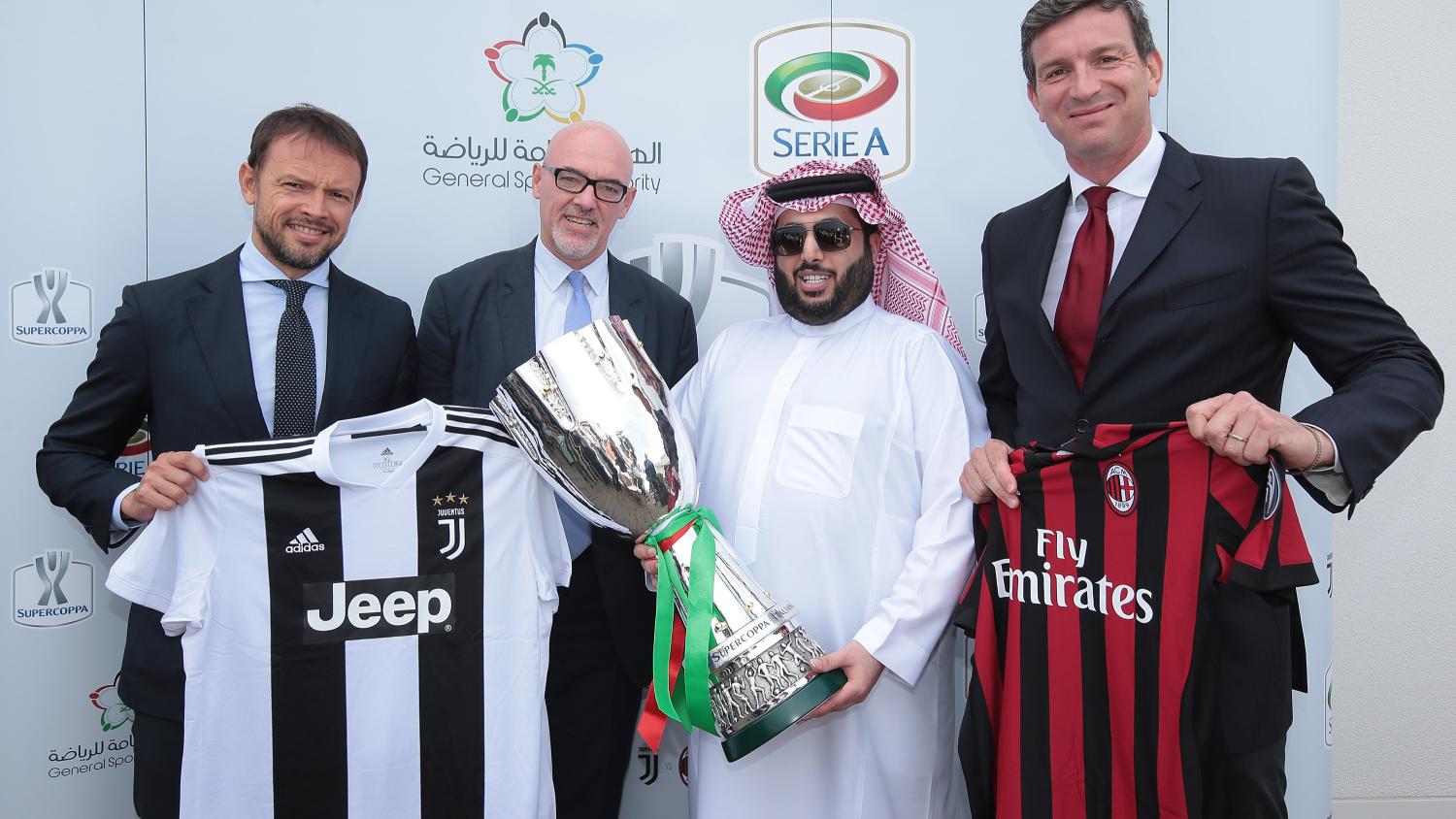We live in an age when there is growing equality among all genders and all colors of skin — perhaps the best we as a species have ever been in treating everyone equally. But one look at the Italian Super Cup — and Serie A as a whole — and it’s easy to see we still have a really fucking long way to go.
Italian football has had its troubles in recent years, and I don’t mean the Azzurri failing to qualify for the 2018 World Cup. Racism, anti-Semitism and match fixing are no strangers to Italy.
The latest mess surrounding the Italian Super Cup is further proof of the lack of tolerance, awareness and appreciation for those who are different that exists in Italian football and to an extent Italy as a whole.
The Italian Super Cup, or Supercoppa Italiana, is played between the last Serie A winner and Italian Cup winner. Since its debut in 1988, it’s been exported abroad 10 times, including the 2018 edition, which will be played in Jeddah, Saudi Arabia, on Jan. 16 between Juventus and AC Milan.
“This trophy, since its first edition abroad in 1993, has been a promotional opportunity for exporting and promoting Italian soccer around the world,” said Serie A president Gaetano Micciche.
This latest Super Cup has caused quite a stir around the world.
Serie A’s decision to hold the match in Saudi Arabia comes on the heels of gross misdeeds reportedly committed by the Saudi government and its leaders. Saudi Arabia has been under fire from human rights organizations such as Amnesty International for issues ranging from its role in the horrifying famine/humanitarian crisis in Yemen to the death of Washington Post journalist Jamal Khashoggi.
Saudi Arabia — led by Crown Prince Mohammed bin Salman — has attempted to portray the country in a positive light by promoting limited reforms (women can drive!) and hosting big sporting events, like a recent Brazil-Argentina friendly. But it’s feels as if these are being done to distract from bigger issues.
For this alone, Amnesty International has called for the match to not be played in Saudi Arabia.
A more recent development has brought increased scrutiny on the Italian Super Cup — the presence of men-only seats at the King Abdullah Sports City Stadium.
Saudi Arabian women weren’t allowed to legally attend sporting events in Saudi Arabia until 2018, but the country still has limits on where women can go in stadiums — and women must be accompanied by men to attend. As such, the Italian Super Cup has areas for “families” where women are allowed and areas for “singles” where only men are allowed.
Note that many of the best seats are only available to men.
Seating Classes of the Italian Super Cup pic.twitter.com/DdzQYszrbn
— General Sports Authority (@gsaksa_en) January 1, 2019
In response to this coming to light, Italian Interior Minister Matteo Salvini called it a “shame” to host the match in a country that treats women in such a manner.
“I won’t watch that match,” Salvini said. “Soccer is a slave to business and television.”
It’s a sentiment shared by many around the world, just adding to the laundry list of issues human rights organizations have with Saudi Arabia. The Italian state TV’s journalists’ union spoke out against having the match in the country that murdered a fellow journalist just three months ago, calling it “absurd” and “unacceptable.”
But Italy and Serie A, like Donald Trump, have chosen to ignore the atrocities committed by Saudi Arabia for the sake of money. Serie A will make $23 million by holding the match in Jeddah, in addition to $4 million for each participating club.
“Soccer is part of Italy’s cultural and economic system and it can’t have different rationales, especially for international relations, from the country it belongs to,” Micciche said. “Saudi Arabia is Italy’s biggest commercial partner in the mideast.
“The match promotes ‘Made in Italy’ and its values.”
Such statements and actions fly in the face of all progress made to human rights in the last 200 years — no one is free until we're all free. And it is symptomatic of Italian football as a whole right now — they don’t really give any fucks about what’s right if it turns a profit.
Take the recent abuse of Napoli star defender Kalidou Koulibaly. The Senegalese international was racially taunted during a recent match with Inter Milan, but Serie A did little to punish Inter and its fans, refusing to halt the match and only giving a light sentence to Inter.
In the aftermath, Salvini, who called playing the Super Cup in Saudi Arabia a shame, played off the racial abuse as “healthy teasing,” a disgusting attempt to sweep vile racism under the rug and indicative of how the country has treated racism in football for years.
If Italian football cared about human rights, the Italian Super Cup would be canceled or moved from Saudi Arabia. Given Micciche’s dense, shortsighted response to criticism, it’s unlikely anything will change before the Italian Super Cup is played on Jan. 16.
“Our Super Cup will go down in history as the first official international competition that Saudi women can attend,” Micciche said Thursday in a statement.
The match sold 50,000 tickets within four hours of going on sale and money will once again trump human rights when the game actually kicks off. One can only hope the outrage for hosting the Super Cup in Saudi Arabia prevents similar matches from being staged in the country. Or even better, encourage Saudi Arabia to start respecting human rights. (We can dream, right?)
Either way, Italian football, which isn’t alone in these problems, has a long way to go to.





